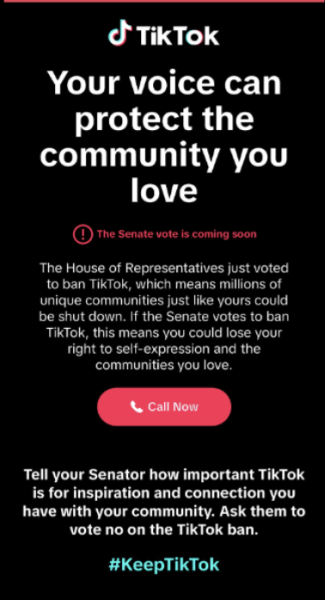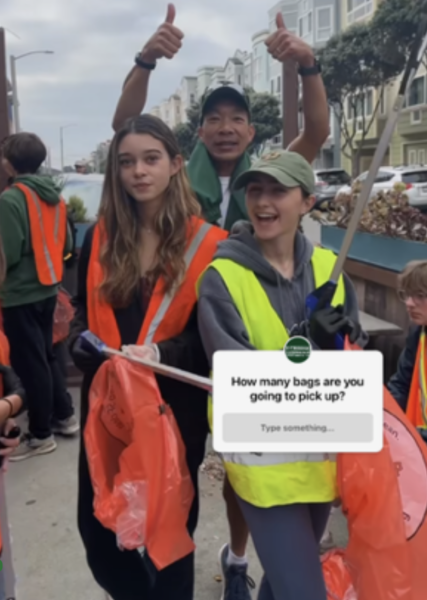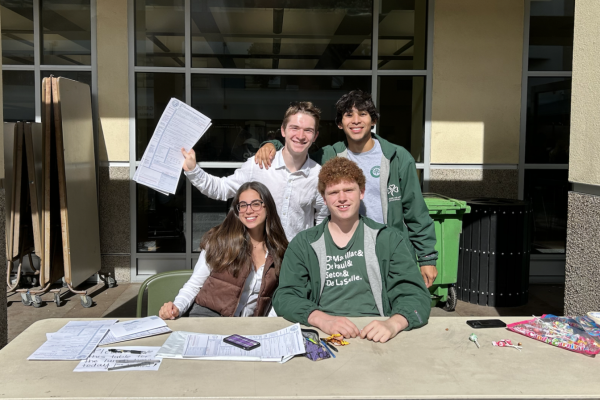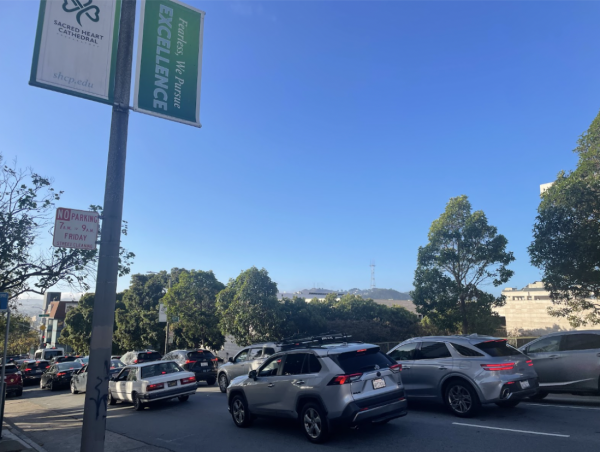Kavanaugh Hearings
What went on in the first 4 days of the hearing for Supreme Court candidate Judge Brett Kavanaugh, as explained by an SHC student.
DAY ONE: Judge Brett Kavanaugh appeared before the Senate Judiciary Committee on Tuesday, September 4th. The hearing was supposed to begin at 9:30 AM, but it was delayed after the Democrats on the committee called for the hearing to be postponed. Democrats including Sen. Richard Blumenthal, Sen. Amy Klobuchar, and California’s own Sen. Kamala Harris interrupted Republican Chairman Sen. Chuck Grassley during his opening remarks.
These rash actions on the Democratic side are in response to the overnight dump of 42,000 documents on the Senate Judiciary Committee, many of which are clearance-level only, meaning that only Congressmen were able to be in the meeting–no staff, no reporters, no one. The White House announced Friday that 100,000 documents from Kavanaugh’s time serving the Bush Administration as a white house lawyer would not be released.
The debate over the document dump continued for about an hour with New Jersey senator Cory Booker asking, “What is the rush? What are we hiding by not letting those documents come out?” However, the debate was ended after Chairman Sen. Grassley called the motion for adjourning “out of order” and denied the motion to vote on postponing the hearing.
The hearing continued after the chairman gave his opening remarks. Sen. Grassley commented that Kavanaugh is “one of the most qualified nominees — if not the most qualified — I’ve ever seen.” Many Republicans echoed his remarks in their opening statements as well. Democrats continued to argue that the process was unfair to the American people. Sen. Lehey told Kavanaugh that, “You shouldn’t be sitting in front of us,” adding, “your vetting is only 10 percent complete.”
When the Senate hearing adjourned for a break, Kavanaugh began to leave. Before he could, Fred Guttenberg, father of a Parkland Shooting victim, introduced himself and reached out to shake Kavanaugh’s hand. Kavanaugh, instead of shaking Mr. Guttenberg’s hand, buttoned his suit and turned away.
This interaction caused online outrage. Those supportive of Kavanaugh argued that Kavanaugh might not have heard Guttenberg, or was confused. However, many who watched the interaction saw that Kavanaugh knew who Guttenberg was and purposefully did not offer his hand or condolences.
DAY TWO: The second day of hearings began at 9:30 ET, Wednesday. Democrats continued to push for a delay but were again denied by Chairman Grassley.
Kavanaugh argued to the committee that he was very independent, commenting that “I’m a pro-law judge…If you walk into my courtroom and you have the better legal arguments, you will win.” However, this did not convince many Democrats, who are concerned that his political views might influence his decisions on the bench, or more specifically in an impeachment trial.
California Sen. Dianne Feinstein questioned Judge Kavanaugh over his opinions on assault weapons and Roe v. Wade, the 1973 Supreme Court decision that legalized abortion nationwide.
Kavanaugh had written dissents and quotes on both topics while acting as a circuit judge on the U.S. Court of Appeals for the D.C. circuit. Kavanaugh argued in his dissent that the assault weapons ban, like the one in Washington D.C., is unconstitutional. On abortion, Kavanaugh wrote in a 2003 email that Roe v. Wade might not be a “settled law of the land,” adding “[The] Court can always overrule its precedent, and three current Justices on the Court would do so.”
In the hearing, Judge Kavanaugh was careful to neither uphold his opinion in the two statements nor demonstrate any change. When asked about his dissent over assault weapons, he argued that assault weapons are widely used and possessed in the U.S. “The question,” he added, “is are they a danger and unusual [weapon],” as the DC weapons ban decided.
On Roe v. Wade, Kavanaugh said he understood the “importance of precedence” in the decision, adding that he doesn’t “live in a bubble.” When Feinstein persisted, Kavanaugh again said that “as a judge, it is an important precedent of the Supreme Court.” His stance is still unclear on both topics.
When asked about presidential pardons, Kavanaugh said that the issue is “something I’ve never analyzed…or written about.” He stated that self-pardons were hypothetical questions that he could not answer as a sitting judge and nominee.
After a short recess, Kavanaugh was asked about his role in a case of a pregnant 17-year old girl seeking an abortion while being held in a Texas facility for immigrant children. Kavanaugh again was careful not to give his opinion, stating that he was a judge, not a policymaker. His dissent in the case accepted that Roe v. Wade applied to the teenager; however, she should have spoken with an adult before the procedure.
From outside the committee hearing, Democratic senators tried to shut down the hearing by invoking a procedural rule. Sen. Chuck Schumer, among many other Democrats, tried to enforce a Senate rule against holding committee meetings past the first two hours of the Senate’s day. Usually, both sides agree by unanimous consent to allow committees to meet while the Senate is in session. However, Majority Leader Mitch McConnell adjourned the Senate floor for the day, allowing the Judiciary Committee to continue to meet for the remainder of the day.
After a half an hour recess, Sen. Cory Booker of New Jersey questioned Kavanaugh about racial profiling, asking Kavanaugh if he believes race-conscious policies are constitutionally valid. Kavanaugh answered “The Supreme Court says it is,” with Booker responding “I know what [SCOTUS] has said, I want to know what you think.” Kavanaugh did not give a clear stance on this issue. Booker also commented on an email titled “Racial Profiling,” that was designated “Committee Confidential.” He pointed out that there is no reason for them to be marked confidential, with Sen Mike Lee, R-Utah, seconding that statement.
Sen. Kamala Harris asked Kavanaugh if he has discussed special counsel Robert Mueller’s investigation with anyone. Kavanaugh answered that he had with other judges. Harris asked if he discussed the probe with Kasowitz Benson Torres, the New York law firm founded by President Trump’s personal attorney Marc Kasowitz. Kavanaugh replied that he’s unsure he knows everyone who works at the law firm and asked the senator for who she was thinking of.
“You’ve been speaking for almost eight hours to this committee about all sorts of things you remember,” Harris responded, “How can you not remember whether or not you had a conversation about Robert Mueller…with anyone at that law firm?” Again, Kavanaugh asked if there was a specific person Harris was thinking of. Harris responded, “I think you are thinking of someone and you don’t want to tell us.”
After 12 hours of questioning, the Kavanaugh hearing adjourned after 10 p.m.
DAY THREE: Day three began at 9:30 AM on Thursday.
Sen. Cory Booker, D-NJ, began his statement by threatening to release “committee confidential” documents, risking an expulsion from the Senate. The documents relate to the email Booker questioned about the day before titled “Racial Profiling.” With his democratic colleagues voicing their support, Booker continued calling Chairman Grassley to “Bring the charges, go through the Senate process to take on somebody you said is unbecoming to be a Senator.” After over an hour of Democrats trying to postpone the hearing again, Grassley began the formal round of questioning.
Kavanaugh was asked about his Roe v. Wade letter again, where Kavanaugh raised doubts about whether the case was a “settled law.” The email does not give Kavanaugh’s opinion on Roe v. Wade, nor does it say if he personally believes the case is settled. Kavanaugh once again repeated this previous claim that the case is an “important precedent of the Supreme Court.”
While the hearing continued, Booker’s office released the classified documents that Booker raised during the session.
Kavanaugh avoided questions on the Russia investigation and the 3D printed gun case. The latter was a case that ruled Cody Wilson could not post designs for 3D-printed guns on his website, so he is instead selling them directly to customers.
After two recesses, the Senate comes back to order and Kavanaugh is asked about indicting a president and recusals. Kavanaugh repeated his earlier statements, saying that he has not taken a position on the constitutionality of indicting a sitting president.
The hearing headed into a closed session around 10:15 pm, almost 13 hours after the meeting began. Much of the hearing consisted of the same topics, such as whether or not Kavanaugh had talked with anyone at Kasowitz’s firm about the Muller probe or his opinions about recusing a sitting president. Both of which he gave no clear answer, explaining that he could not recall talking to anyone specifically and stating that he could not comment on hypothetical situations.
The committee will reconvene Friday for the fourth day of hearings. It is unclear if Sen. Booker will face charges for his unauthorized release of confidential documents.
DAY FOUR: The fourth day consisted of testimonies for and against the confirmation of Kavanaugh.
Those on the Democratic side, like New York University law professor Melissa Murray, told senators that the Kavanaugh confirmation would mean that Kavanaugh would give the “necessary fifth vote that would utterly eviscerate” the Roe v. Wade decision.
On the opposite side, supporters of Kavanaugh included longtime friends and law clerks, who praised his efforts to support and hire both minorities and women.
Senators of the Judiciary Committee are likely to vote on Kavanaugh’s confirmation on September 20th. From there, the Senate will vote the following week and the House of Representatives after that.








